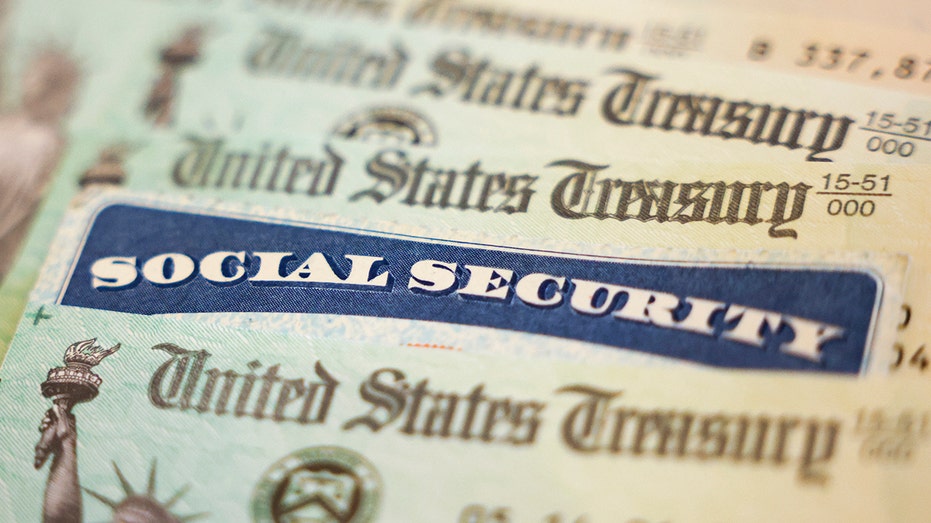Social Security COLA update coming this week - and it could be huge
Inflation poised to give Social Security recipients biggest increase in decades
Fed hawkishness may have peaked, inflation could follow: Kevin Mahn
Hennion & Walsh Asset Management president and CIO Kevin Mahn warns more volatility could be in store for the stock market on 'The Claman Countdown.'
Retired Americans collecting Social Security benefits will find out this week just how big their cost-of-living adjustment will be in 2023 as stubbornly high inflation rapidly diminishes their buying power.
The Social Security Administration will announce on Thursday the 2023 cost-of-living adjustment for people who receive retirement or disability benefits. Thanks to the hottest inflation in four decades, the increase is expected to be one of the largest in recent memory.
The Senior Citizens League, a nonpartisan group focusing on issues relating to older Americans, estimated the adjustment could be 8.7%, based on August inflation data, which showed that consumer prices soared 8.5% from the previous year, near a multi-decade high.
The annual Social Security change is calculated based on the Consumer Price Index for Urban Wage Earners and Clerical Workers, or the CPI-W, which jumped 8.7% over the past year.
THE FED'S WAR ON INFLATION COULD COST 1M JOBS

In this photo illustration, a Social Security card sits alongside checks from the U.S. Treasury on October 14, 2021, in Washington, DC. ((Photo illustration by Kevin Dietsch/Getty Images) / Getty Images)
Should Social Security beneficiaries see an 8.7% increase in their monthly checks next year, it would mark the steepest annual adjustment since 1981, when recipients saw an 11.2% bump. An increase of that magnitude would raise the average retiree benefit of $1,656 by about $144 per month or roughly $1,729 annually, the group said.
"A COLA of 8.7% is extremely rare and would be the highest ever received by most Social Security beneficiaries alive today," Mary Johnson, a policy analyst at the Senior Citizens League who conducted the research, said. "There were only three other times since the start of automatic adjustments that it was higher."
However, the decades-high benefit increase is not always good news for recipients, according to Johnson.
Higher Social Security payments are a bit of a Catch-22. They can reduce eligibility for low-income safety net programs, like food stamps, and can push people into higher tax brackets, meaning retirees will pay more taxes on a bigger share of their monthly payments.

A shopper looks at organic produce at a supermarket in Montebello, California, on August 23, 2022. ((Photo by FREDERIC J. BROWN/AFP via Getty Images) / Getty Images)
Since 1984, retirees have owed taxes on their benefits if their income – including their Social Security payments – is more than $25,000 if they are single, or $32,000 if they are a married couple. Individuals who earn more than $34,000 and couples who earn more than $44,000 can be taxed on up to 85% of their benefits.
Some seniors may never have owed taxes on their benefits, but that's likely to change next year when they file their tax returns. In fact, the Congressional Budget Office has estimated the share of Social Security benefits subject to tax could grow by 10% this year and another 10% in 2023. In all, total income taxes paid on that money are projected to climb by 37% this year.
"There can be some very long-term effects to high inflation COLAs," Johnson previously told FOX Business. "It's like a no-win situation."
The average benefit in 2022 jumped by 5.9%, which amounted to an average monthly increase of $92 for retired Americans, bringing the total amount to $1,657, the Social Security Administration announced last year. Soaring inflation has already eroded the entirety of the increase, however, with recipients losing 48% of their buying power as of August, according to calculations by the Senior Citizens League.

Shoppers walk through the milk and cream section of a supermarket in Montebello, California, on August 23, 2022. ((Photo by FREDERIC J. BROWN/AFP via Getty Images) / Getty Images)
The average monthly benefit would have to increase by $417.60 for retirees to maintain the same level of purchasing power as in 2000.
CLICK HERE TO READ MORE ON FOX BUSINESS
The group has pushed Congress to adopt legislation that would index the adjustment to inflation specifically for seniors, such as the Consumer Price Index for the Elderly, or the CPI-E. That index tracks explicitly the spending of households with people aged 62 and older.





















